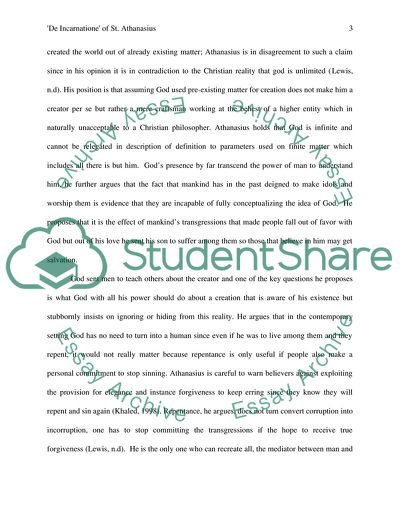Cite this document
(De Incarnatione' of St Athanasius Essay Example | Topics and Well Written Essays - 2000 words, n.d.)
De Incarnatione' of St Athanasius Essay Example | Topics and Well Written Essays - 2000 words. https://studentshare.org/religion-and-theology/1835765-summarize-and-discuss-the-following-primary-text-de-incarnatione-of-st-athanasius
De Incarnatione' of St Athanasius Essay Example | Topics and Well Written Essays - 2000 words. https://studentshare.org/religion-and-theology/1835765-summarize-and-discuss-the-following-primary-text-de-incarnatione-of-st-athanasius
(De Incarnatione' Of St Athanasius Essay Example | Topics and Well Written Essays - 2000 Words)
De Incarnatione' Of St Athanasius Essay Example | Topics and Well Written Essays - 2000 Words. https://studentshare.org/religion-and-theology/1835765-summarize-and-discuss-the-following-primary-text-de-incarnatione-of-st-athanasius.
De Incarnatione' Of St Athanasius Essay Example | Topics and Well Written Essays - 2000 Words. https://studentshare.org/religion-and-theology/1835765-summarize-and-discuss-the-following-primary-text-de-incarnatione-of-st-athanasius.
“De Incarnatione' Of St Athanasius Essay Example | Topics and Well Written Essays - 2000 Words”. https://studentshare.org/religion-and-theology/1835765-summarize-and-discuss-the-following-primary-text-de-incarnatione-of-st-athanasius.


